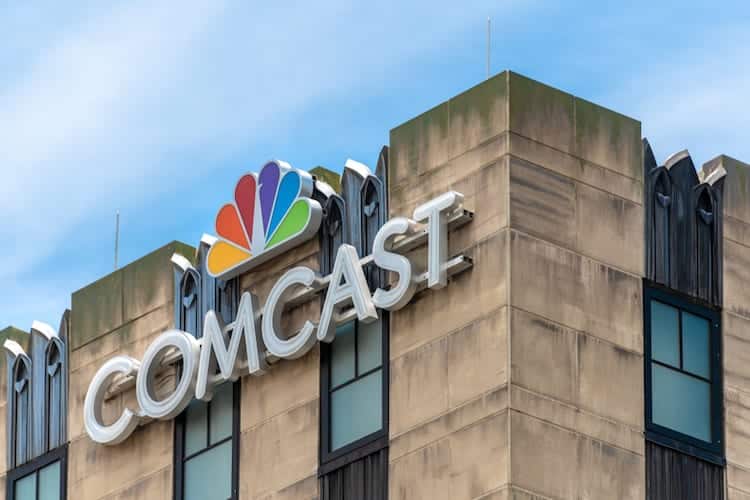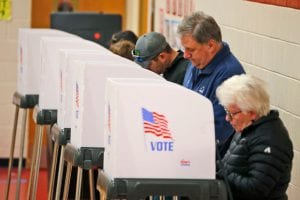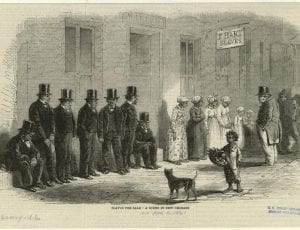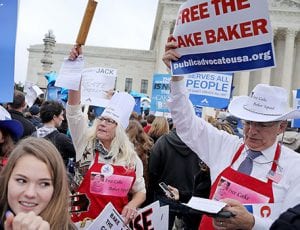 On January 2, 2020, it was announced that an air strike ordered by President Donald Trump had successfully targeted and killed Qasem Soleimani, chief of the Quds Force, at Baghdad International Airport. The Quds Force is regarded as the elite unit of Iran’s military; it handles overseas operations and is classified as a foreign terrorist organization by the United States. Soleimani and his troops have been responsible for the deaths of hundreds of American and coalition service members, as well as the wounding of thousands more.1
On January 2, 2020, it was announced that an air strike ordered by President Donald Trump had successfully targeted and killed Qasem Soleimani, chief of the Quds Force, at Baghdad International Airport. The Quds Force is regarded as the elite unit of Iran’s military; it handles overseas operations and is classified as a foreign terrorist organization by the United States. Soleimani and his troops have been responsible for the deaths of hundreds of American and coalition service members, as well as the wounding of thousands more.1
Soleimani’s killing follows an Iranian attack on December 27, 2019, against a U.S. military base in Iraq, and a coordinated assault on the U.S. embassy in Baghdad. Both of these attacks were commanded by Soleimani.2 In a statement, the Department of Defense explained that the strike was “aimed at deterring future Iranian attack plans.”3 The day after Soleimani’s death, Secretary of State Mike Pompeo said that there was an imminent threat of attack, plotted by Soleimani, that would have put many American lives at risk.4
The news of President Trump’s order to kill Soleimani has received both praise and criticism from members of Congress. Republican lawmakers have largely applauded the strike, arguing that it brought justice to many American military families; they also insist that the Quds Force would be to blame for any escalation that comes.5 Speaker of the House Nancy Pelosi, meanwhile, has stated that the administration’s action risks provoking further escalation of violence around the world.6 Many Democrats fear that the consequences of the strike could lead to another war in the Middle East.7 The divided response from Congress on the legality of the attack has also reignited a debate on presidential war powers.
There has been criticism from congressional Republicans as well. Senator Mike Lee (R-Utah) said that the administration’s effort to explain the attack was “probably the worst briefing I have seen, at least on a military issue, in the nine years I’ve served in the United States Senate.” Senator Lee added, “What I found so distressing about the briefing is one of the messages we received from the briefers was, ‘Do not debate, do not discuss the issue of the appropriateness of further military intervention against Iran,’ and that if you do, ‘You will be emboldening Iran.’”8 Senator Rand Paul (R-Ky.) added, “I think it’s sad when people have this fake sort of drape of patriotism, and anybody that disagrees with them is not a patriot. … For him to insult and say that somehow we’re not as patriotic as he is—he hasn’t even read the Constitution … he insults the Constitution, our Founding Fathers, and what we do stand for in this republic by making light of it and accusing people of lacking patriotism.”9
Even with those questions and critiques from President Trump’s fellow Republicans, it is unlikely that the Senate will take actions to curb the president’s authority. On January 9, the House of Representatives passed a concurrent resolution to restrict the administration’s authority to strike Iran without congressional approval. The resolution now heads to the Senate, but it is less likely to pass in that chamber. Meanwhile, House leadership is considering further action to reduce the president’s authority to act without the input of Congress.10
While U.S.-Iran relations have long been tense and unsettled, those relations have become have become increasingly contentious in recent years. With the United States’ withdrawal from the Iran nuclear deal, the reinstatement of sanctions in 2018, and Iran’s recent attacks on U.S. personnel, the hope for improved relations still seems distant.
Discussion Questions
- Do you think the United States was right to kill Soleimani? Why or why not?
- Was the attack on Soleimani a proper response to the December attacks on Americans? Why or why not?
- Why do you think members of Congress are so divided in their response?
- How does this impact U.S. troops abroad?
- Do you think the killing of Soleimani has lessened or heightened the risk of an Iranian attack against the United States?
- What should the balance of power be between the executive and legislative branches when it comes to military action?
Featured Image Credit: https://cdn.cnn.com/cnnnext/dam/assets/200102230543-qassem-soleimani-file-2016-restricted-exlarge-169.jpg
[1] CNN: https://www.cnn.com/2020/01/03/asia/soleimani-profile-intl-hnk/index.html
[2] The Hill: https://thehill.com/opinion/national-security/476632-soleimani-is-dead-but-the-enemy-still-stands
[3] Department of Defense: https://www.defense.gov/Newsroom/Releases/Release/Article/2049534/statement-by-the-department-of-defense/
[4] Reuters: https://www.reuters.com/article/us-iraq-security-blast-target/iranian-commander-soleimani-had-been-in-pompeos-sights-for-years-idUSKBN1Z21UT
[5] New York Times: https://www.nytimes.com/2020/01/02/us/politics/us-iran-war.html
[6] New York Times: https://www.nytimes.com/2020/01/03/world/middleeast/iranian-general-qassem-soleimani-killed.html
[7] Ibid.
[8] Washington Post: https://www.washingtonpost.com/politics/2020/01/08/most-disturbing-part-mike-lees-broadside-against-trump-administrations-iran-briefing/
[9] Washington Post: https://www.washingtonpost.com/opinions/2020/01/09/why-dont-mike-lee-rand-paul-have-support/
[10] CBS News: https://www.cbsnews.com/news/war-powers-resolution-house-votes-to-limit-trumps-ability-act-against-iran/
 On November 15, 2019, the Texas Court of Criminal Appeals suspended the execution of Rodney Reed and sent his case back to trial, due to new witness testimony that pointed to his innocence and raised concerns about how evidence was handled during the initial trial.
On November 15, 2019, the Texas Court of Criminal Appeals suspended the execution of Rodney Reed and sent his case back to trial, due to new witness testimony that pointed to his innocence and raised concerns about how evidence was handled during the initial trial. On October 30, Twitter CEO Jack Dorsey announced that, effective November 22, Twitter would ban all political advertising on its platform. Dorsey justified the decision by explaining that political ads present “entirely new challenges to civic discourse.”1 Twitter’s sweeping decision was not an arbitrary one; it was the result of a new wave of scrutiny and criticism over the way social media companies manage political advertising, especially when the ads in question are false or misleading.
On October 30, Twitter CEO Jack Dorsey announced that, effective November 22, Twitter would ban all political advertising on its platform. Dorsey justified the decision by explaining that political ads present “entirely new challenges to civic discourse.”1 Twitter’s sweeping decision was not an arbitrary one; it was the result of a new wave of scrutiny and criticism over the way social media companies manage political advertising, especially when the ads in question are false or misleading.

 On November 13, 2019, the Supreme Court heard arguments in Comcast Corp. v. National Association of African American-Owned Media.1 The Court’s decision will determine how difficult it will be to bring future cases regarding possible discrimination and racial bias to trial.2
On November 13, 2019, the Supreme Court heard arguments in Comcast Corp. v. National Association of African American-Owned Media.1 The Court’s decision will determine how difficult it will be to bring future cases regarding possible discrimination and racial bias to trial.2 On Tuesday, November 5, 2019, voters in eight states went to the polls to vote in local and statewide elections. Competitive gubernatorial and state legislative races were held in Kentucky, Mississippi, and Virginia.1 These were the last elections before the 2020 census, which could result in the redrawing of political boundaries in each state. Furthermore, the results of these elections could be potential indicators of voter behavior and turnout in the 2020 election.
On Tuesday, November 5, 2019, voters in eight states went to the polls to vote in local and statewide elections. Competitive gubernatorial and state legislative races were held in Kentucky, Mississippi, and Virginia.1 These were the last elections before the 2020 census, which could result in the redrawing of political boundaries in each state. Furthermore, the results of these elections could be potential indicators of voter behavior and turnout in the 2020 election. Immigration policy and enforcement continues to be a major area of conflict between Democrats and Republicans. Currently, Congress is considering many bills related to immigration, asylum, migrant detention, and family separation. This week, we will look at two proposals that Republicans are advancing;
Immigration policy and enforcement continues to be a major area of conflict between Democrats and Republicans. Currently, Congress is considering many bills related to immigration, asylum, migrant detention, and family separation. This week, we will look at two proposals that Republicans are advancing;  What are the students’ demands?
What are the students’ demands? In January 2019, Representative Sheila Jackson Lee (D-Texas) introduced H.R. 40: The Commission to Study and Develop Reparations Proposals for African Americans Act.1 Reparations for slavery, Jim Crow, and systematic segregation and racism in major U.S. institutions is not a new idea, but it has never gained the type of traction that it currently has. In June, the House Judiciary Committee held hearings to begin exploring the idea.2
In January 2019, Representative Sheila Jackson Lee (D-Texas) introduced H.R. 40: The Commission to Study and Develop Reparations Proposals for African Americans Act.1 Reparations for slavery, Jim Crow, and systematic segregation and racism in major U.S. institutions is not a new idea, but it has never gained the type of traction that it currently has. In June, the House Judiciary Committee held hearings to begin exploring the idea.2 On August 15, the Department of Labor published proposed changes that would expand federal contractors’ ability to claim a religious exemption to equal opportunity and anti-discrimination rules.1 The proposed rule change, as written, could allow employers with federal contracts to fire or refuse to hire LGBTQ employees, and could even be used to fire unmarried pregnant women if an employer claimed that it was against their religion to support having sex out of wedlock.
On August 15, the Department of Labor published proposed changes that would expand federal contractors’ ability to claim a religious exemption to equal opportunity and anti-discrimination rules.1 The proposed rule change, as written, could allow employers with federal contracts to fire or refuse to hire LGBTQ employees, and could even be used to fire unmarried pregnant women if an employer claimed that it was against their religion to support having sex out of wedlock.






